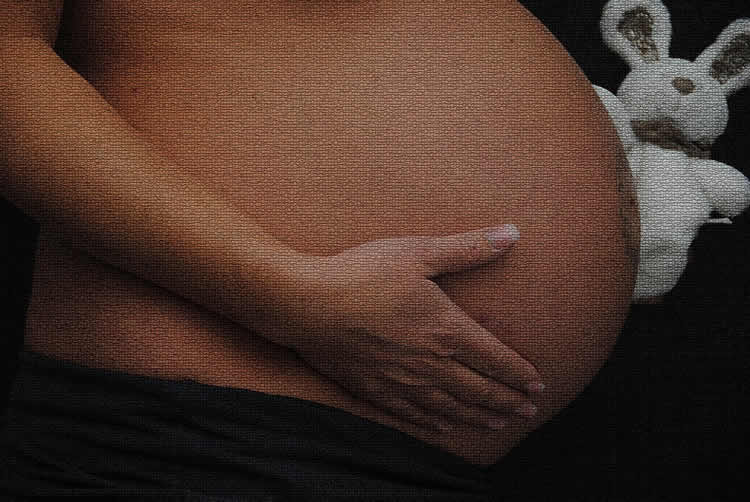Summary: Researchers have identified a link between low vitamin D levels in pregnant and breastfeeding mothers, and autism like behaviors in their offspring. The study reveals low levels vitamin D in mothers may be associated with altered brain development that can lead to social behavioral deficits in their children.
Source: Society for Endocrinology.
Low levels of vitamin D during pregnancy and breast feeding may be related to an unusual pattern of brain development that can lead to differences in social behaviour of children in later life, according to a study published in the Journal of Endocrinology. Rats with vitamin D deficiency during pregnancy and lactation produced offspring that displayed altered social behaviours in adulthood. Differences in social behaviours are a hallmark of numerous human conditions, including autism spectrum disorder (ASD), and these findings provide further evidence of the importance of maternal vitamin D levels during pregnancy for brain development of offspring.
ASD is a lifelong condition that ranges in severity and impacts on how individuals interact and communicate with the world. Human studies have found that lower levels of maternal Vitamin D during pregnancy are associated with an increased risk of ASD in children. However, the biological mechanisms underpinning this relationship remain unclear.
To examine how maternal vitamin D levels may influence brain development, Dr Caitlin Wyrwoll and colleagues at the University of Western Australia, assessed alterations in markers of brain function and social behaviours of adult rats, born to mothers that were vitamin D deficient during pregnancy and lactation. They found that rats with vitamin D-deficient mothers displayed abnormal social behaviours, altered brain chemistry and impaired learning and memory.
Dr Caitlin Wyrwoll states, “Our work reinforces that vitamin D levels in early life influence brain development and can impact on how the brain functions in later life.”

Dr Wyrwoll comments, “We know that early life environment can be a powerful determinant of health outcomes in offspring and, although this is a rat study, these data indicate that vitamin D levels during pregnancy are important for brain development, and may point to a contributing factor in the development of neurodevelopmental conditions, such as ASD. However, further work is needed to establish whether these associations also apply to humans.”
Source: Society for Endocrinology
Publisher: Organized by NeuroscienceNews.com.
Image Source: NeuroscienceNews.com image is in the public domain.
Original Research: Open access research for “Vitamin D is crucial for maternal care and offspring social behaviour in rats” by Nathanael J Yates, Dijana Tesic, Kirk W Feindel, Jeremy T Smith, Michael W Clarke, Celeste Wale, Rachael C Crew, Michaela D Wharfe, Andrew J O Whitehouse and Caitlin S Wyrwoll in Journal of Endocrinology. Published online March 2018.
doi:10.1530/JOE-18-0008
[cbtabs][cbtab title=”MLA”]Society for Endocrinology “Autism Like Behaviors in Children Linked to Low Vitamin D Levels in Mothers.” NeuroscienceNews. NeuroscienceNews, 26 March 2018.
<https://neurosciencenews.com/vitamin-d-autism-8686/>.[/cbtab][cbtab title=”APA”]Society for Endocrinology (2018, March 26). Autism Like Behaviors in Children Linked to Low Vitamin D Levels in Mothers. NeuroscienceNews. Retrieved March 26, 2018 from https://neurosciencenews.com/vitamin-d-autism-8686/[/cbtab][cbtab title=”Chicago”]Society for Endocrinology “Autism Like Behaviors in Children Linked to Low Vitamin D Levels in Mothers.” https://neurosciencenews.com/vitamin-d-autism-8686/ (accessed March 26, 2018).[/cbtab][/cbtabs]
Vitamin D is crucial for maternal care and offspring social behaviour in rats
Early life vitamin D plays a prominent role in neurodevelopment and subsequent brain function, including schizophrenic-like outcomes and increasing evidence for an association with autism spectrum disorder (ASD). Here, we investigate how early life vitamin D deficiency during rat pregnancy and lactation alters maternal care and influences neurodevelopment and affective, cognitive and social behaviours in male adult offspring. Sprague–Dawley rats were placed on either a vitamin D control (2195 IU/kg) or deficient diet (0 IU/kg) for five weeks before timed mating, and diet exposure was maintained until weaning of offspring on postnatal day (PND) 23. MRI scans were conducted to assess brain morphology, and plasma corticosterone levels and neural expression of genes associated with language, dopamine and glucocorticoid exposure were characterised at PND1, PND12 and 4 months of age. Compared to controls, vitamin D-deficient dams exhibited decreased licking and grooming of their pups but no differences in pup retrieval. Offspring neurodevelopmental markers were unaltered, but vitamin D-deficient pup ultrasonic vocalisations were atypical. As adults, males that had been exposed to vitamin D deficiency in early life exhibited decreased social behaviour, impaired learning and memory outcomes and increased grooming behaviour, but unaltered affective behaviours. Accompanying these behavioural changes was an increase in lateral ventricle volume, decreased cortical FOXP2 (a protein implicated in language and communication) and altered neural expression of genes involved in dopamine and glucocorticoid-related pathways. These data highlight that early life levels of vitamin D are an important consideration for maternal behavioural adaptations as well as offspring neuropsychiatry.






